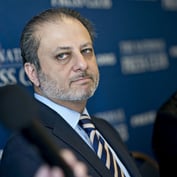NEW YORK (HedgeWorld.com)–Citigroup Inc. announced that it has filed an answer and counterclaims to a lawsuit brought against it in August 2004 by Enrico Bondi, the man Italy has designated the “extraordinary commissioner of Parmalat.”
While Dr. Bondi’s lawsuit contends that Citigroup assisted the now-insolvent dairy giant in cooking its books, Citigroup asserts that it is among the victims of that fraud and that its damages amount to 500 million euros (US$660 million).
These are among the fraudulent activities of Parmalat that Citigroup invokes in its counterclaims:
?? 1/2 The invention of assets in a fictitious Cayman Islands hedge fund;
?? 1/2 Forgery of documents to make it appear Parmalat had US$4.9 billion in a Bank of America Account;
?? 1/2 Recording of a fictitious sale of 300,000 tons of powdered milk to Cuba;
?? 1/2 Booking of false bond buy-backs; and
?? 1/2 Manipulation of the goodwill attributable to subsidiaries and the value of trademarks.
“Citigroup had nothing to do with these frauds and was not aware of them,” said the chief executive of Citigroup’s corporate and investment bank in Europe, the Middle East and Africa, William J. Mills, in a statement on the day of the filing, in a New Jersey court, March 17.
Parmalat Finanziaria S.p.A, the holding company for the Parmalat group, is a joint stock company incorporated under Italian law in June 1972. It was in 1997 that Parmalat jumped into the world markets in a big way, financing several international acquisitions, especially in the Western Hemisphere, with debt. By 2001, many of the new divisions were producing losses, and the company shifted to derivatives, apparently to some degree to hide this fact.
There are several lawsuits pending–such as one by the South Alaskan Miners’ Pension Fund–against not only Parmalat but Bank of America and Citicorp, which focuses on the activities of a Parmalat subsidiary known appropriately as buconero, the black hole.








 March 29, 2005 at 07:00 PM
March 29, 2005 at 07:00 PM









